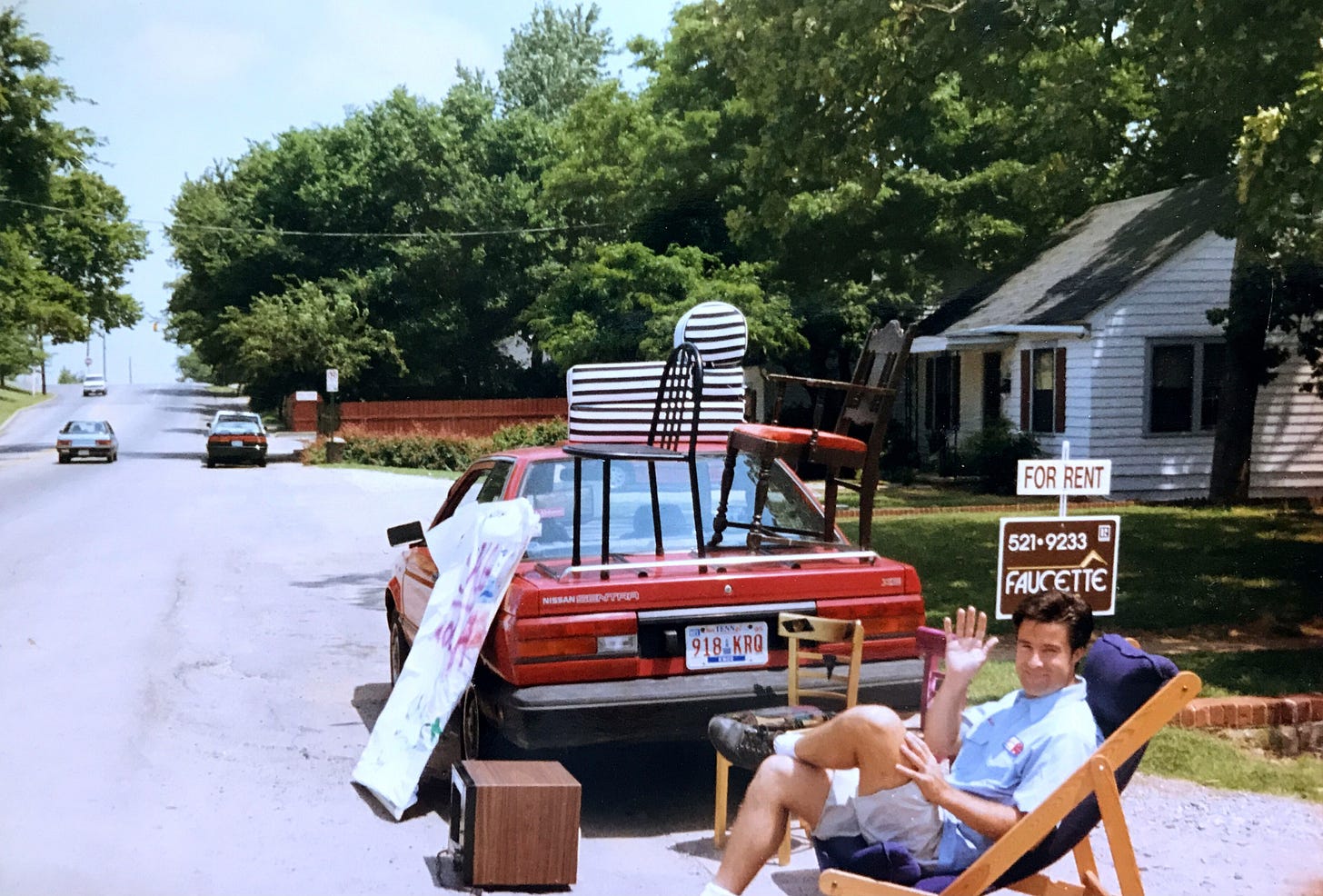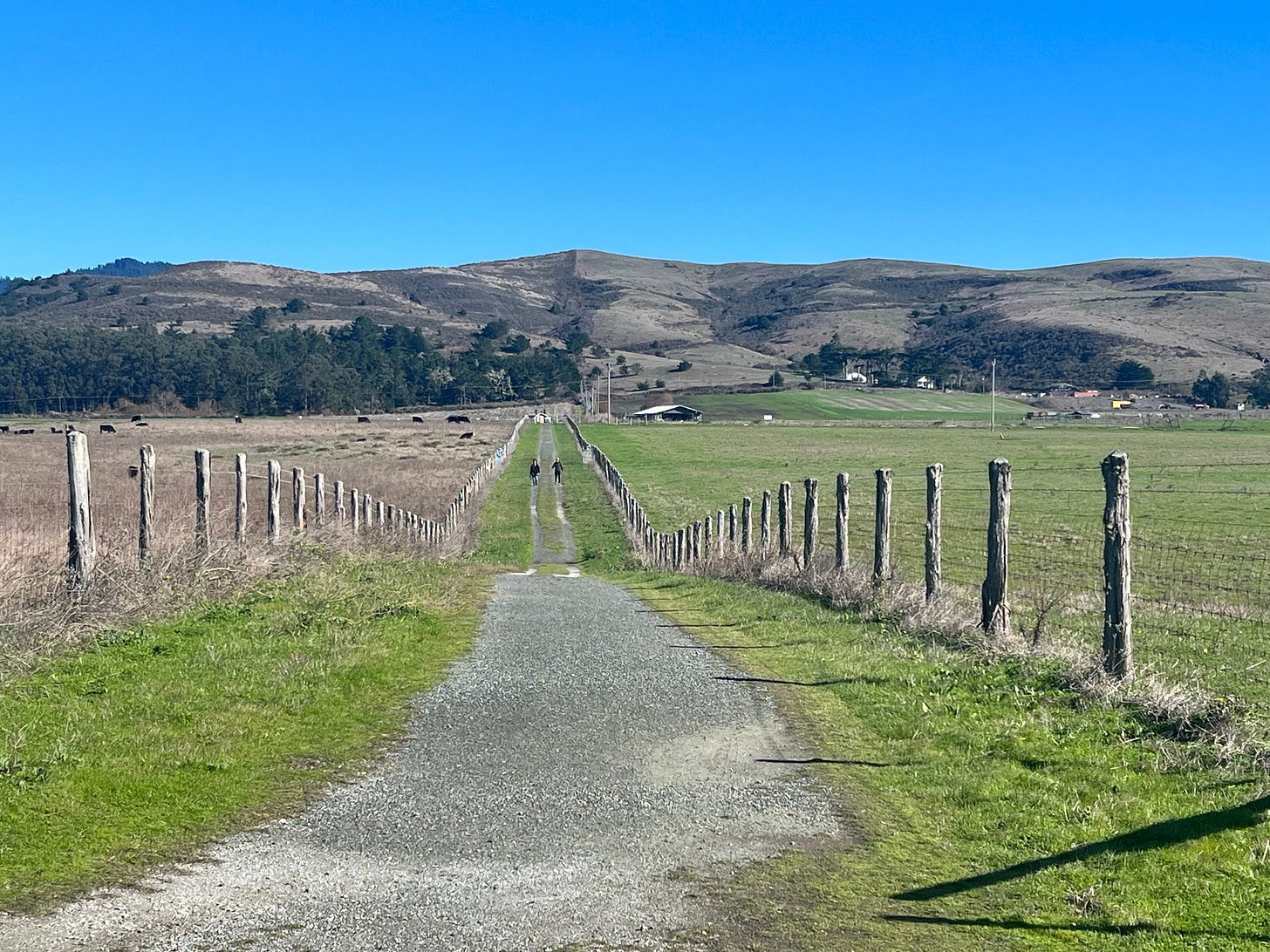“The road you can talk about is not the road you can walk on.” Lao Tzu
Every now and then my husband likes to remind me what I said to him the first time I ever rode in a car with him. A truck, actually. This was in Fayetteville, Arkansas, in the mid-nineties, and we’d just met a few days before. He invited me to go for a drive, and about fifteen miles into the journey he asked why I was so quiet. “I don’t like to talk in the car,” I said.
“You’re weird,” he said. He married me anyway.
I guess he would have liked to know about my moratorium on vehicular conversation before he went for a long ride with a stranger. But I like looking out the window, even in Northwest Arkansas where there’s not much to look at. I don’t know where my mind goes. But talking in a car makes me feel trapped. I prefer to just look and think. Is that weird? Maybe.
Anyway, we had just started the MFA program at the University of Arkansas (which we would both drop out of at the end of the year). Probably, the natural thing to talk about would have been writing. But I didn’t really enjoy talking about writing out loud back then, unless I was teaching. That hasn’t changed much. I especially don’t like talking about the specific book I’m writing.

One of my favorite books of the past decade is Olga Tokarczuk’s Flights. Tokarczuk calls the act of writing a novel “a controlled psychosis” that occurs “in solitary confinement…Every so often someone stops and bends down and glances in through the window, and then you get a glimpse of a human face, maybe even exchange a few words.”
But then you have to let them pass on so you can get back to what you’re doing. For the most part, there you are, alone, living in a strange world of your own making.
Writing is deep work. There are thousands of conferences and magazines and communities—online and off—devoted to talking about it, but in the end, the best and most meaningful writing is done in solitude.
The important conversation is not between you and other writers, sitting around talking about writing. The important conversation is between you and your readers. The conversation is conducted almost entirely in silence. You will never know what most of your readers are thinking. And even if they reach out to tell you their feelings about your book, they usually reach out only after having finished the book; what they’re telling you is a summation, not the conversation itself. An entire conversation between the reader and the book happens in real time, in the reader’s mind, and that is a conversation to which you will never be privy. It is an intellectually intimate conversation, and often an emotionally intimate one as well. Far more intimate, probably, than any conversation you will ever have about the act of writing.
So go to conferences if they help you. Get an MFA if it motivates you. Read books about writing if they inspire you. Talk with your writer friends about writing every now and then. Hell, take a ride in a truck with a guy you just met in your writing program through the Arkansas hills. But don’t let the talking about writing get in the way of writing. Don’t think of the conversation about writing as the most important part. It just isn’t.
In the end, you’re going to walk on a road you haven’t talked about. The better the road, the less you’ll want to talk about it. You will want to walk this road alone. You can’t follow the road if you’re constantly stopping to chat. So turn down the literary lunch date. Skip the party. Spend time alone with your pen and notebook instead. Write something.
Thank you for reading The Caffeinated Writer. If you like this post, you might enjoy one of my books or classes. As always, happy writing!




